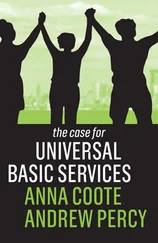I believe that the very process of dialogue, moderation and compromise involved in building a community of Asian states would itself give real hope of peaceful evolution to a new order in China. From the very start, the member states of such a community might agree to decide its defense and international relations policies together. There would be many opportunities for cooperation. The critical point is that we find a peaceful, nonviolent way for the forces of freedom, democracy and moderation to emerge successfully from the current atmosphere of unjust repression.
Zones of peace
I see Tibet's role in such an Asian Community as what I have previously called a «Zone of Peace»: a neutral, demilitarized sanctuary where weapons are forbidden and the people live in harmony with nature. This is not merely a dream-it is precisely the way Tibetans tried to live for over a thousand years before our country was invaded. As everybody knows, in Tibet all forms of wildlife were strictly protected in accordance with Buddhist principles. Also, for at least the last three hundred years, we had no proper army. Tibet gave up the waging of war as an instrument of national policy in the sixth and seventh centuries, after the reign of our three great religious kings.
Returning to the relationship between developing regional communities and the task of disarmament, I would like to suggest that the «heart» of each community could be one or more nations that have decided to become zones of peace, areas from which military forces are prohibited. This, again, is not just a dream. Four decades ago, in December 1948, Costa Rica disbanded its army. Recently, 37 percent of the Swiss population voted to disband their military. The new government of Czechoslovakia has decided to stop the manufacture and export of all weapons. If its people so choose, a nation can take radical steps to change its very nature.
Zones of peace within regional communities would serve as oases of stability. While paying their fair share of the costs of any collective force created by the community as a whole, these zones of peace would be the forerunners and beacons of an entirely peaceful world and would be exempt from engaging in any conflict. If regional communities do develop in Asia, South America and Africa and disarmament progresses so that an international force from all regions is created, these zones of peace will be able to expand, spreading tranquillity as they grow.
We do not need to think that we are planning for the far distant future when we consider this or any other proposal for a new, more politically, economically and militarily cooperative world. For instance, the newly invigorated forty-eight member Conference on Security and Cooperation in Europe has already laid the foundation for an alliance between not only the nations of Eastern and Western Europe but also between the nations of the Commonwealth of Independent States and the United States. These remarkable events have virtually eliminated the danger of a major war between these two superpowers.
I have not included the United Nations in this discussion of the present era because both its critical role in helping create a better world and its great potential for doing so are so well known. By definition, the United Nations must be in the very middle of whatever major changes occur. However, it may need to amend its structure for the future. I have always had the greatest hopes for the United Nations, and with no criticism intended, I would like simply to point out that the post-World War II climate under which its charter was conceived has changed. With that change has come the opportunity to further democratize the UN, especially the somewhat exclusive Security Council with its five permanent members, which should be made more representative.
In conclusion
I would like to conclude by stating that, in general, I feel optimistic about the future. Some recent trends portend our great potential for a better world. As late as the fifties and sixties, people believed that war was an inevitable condition of mankind. The Cold War, in particular, reinforced the notion that opposing political systems could only clash, not compete or even collaborate. Few now hold this view. Today, people all over the planet are genuinely concerned about world peace. They are far less interested in propounding ideology and far more committed to coexistence. These are very positive developments.
Also, for thousands of years people believed that only an authoritarian organization employing rigid disciplinary methods could govern human society. However, people have an innate desire for freedom and democracy, and these two forces have been in conflict. Today, it is clear which has won. The emergence of non violent «people's power» movements have shown indisputably that the human race can neither tolerate nor function properly under the rule of tyranny. This recognition represents remarkable progress.
Another hopeful development is the growing compatibility between science and religion. Throughout the nineteenth century and for much of our own, people have been profoundly confused by the conflict between these apparently contradictory world views. Today, physics, biology and psychology have reached such sophisticated levels that many researchers are starting to ask the most profound questions about the ultimate nature of the universe and life, the same questions that are of prime interest to religions. Thus there is real potential for a more unified view. In particular, it seems that a new concept of mind and matter is emerging. The East has been more concerned with understanding the mind, the West with understanding matter. Now that the two have met, these spiritual and material views of life may become more harmonized.
The rapid changes in our attitude towards the earth are also a source of hope. As recently as ten or fifteen years ago, we thoughtlessly consumed its resources, as if there was no end to them. Now, not only individuals but governments as well are seeking a new ecological order. I often joke that the moon and stars look beautiful, but if any of us tried to live on them, we would be miserable. This blue planet of ours is the most delightful habitat we know. Its life is our life; its future, our future. And though I do not believe that the Earth itself is a sentient being, it does indeed act as our mother, and, like children, we are dependent upon her. Now mother nature is telling us to cooperate. In the face of such global problems as the greenhouse effect and the deterioration of the ozone layer, individual organizations and single nations are helpless. Unless we all work together, no solution will be found. Our mother is teaching us a lesson in universal responsibility.
I think we can say that, because of the lessons we have begun to learn, the next century will be friendlier, more harmonious, and less harmful. Compassion, the seed of peace, will be able to flourish. I am very hopeful. At the same time, I believe that every individual has a responsibility to help guide our global family in the right direction. Good wishes alone are not enough; we have to assume responsibility. Large human movements spring from individual human initiatives. If you feel that you cannot have much of an effect, the next person may also become discouraged and a great opportunity will have been lost. On the other hand, each of us can inspire others simply by working to develop our own altruistic motivation.
I am sure that many honest, sincere people all over the world already hold the views that I have mentioned here. Unfortunately, nobody listens to them. Although my voice may go unheeded as well, I thought that I should try to speak on their behalf. Of course, some people may feel that it is very presumptuous for the Dalai Lama to write in this way. But, since I received the Nobel Peace Prize, I feel I have a responsibility to do so. If I just took the Nobel money and spent it however I liked, it would look as if the only reason I had spoken all those nice words in the past was to get this prize! However, now that I have received it, I must repay the honor by continuing to advocate the views that I have always expressed.
Читать дальше












